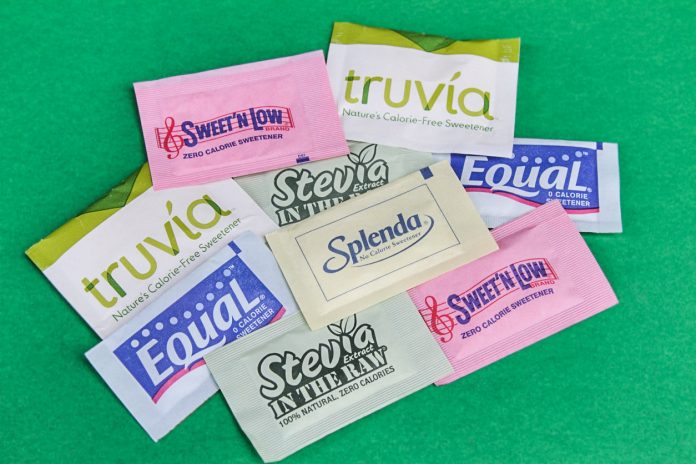Scientific studies are raising concerns about the health effects of sugar substitutes.
Known as ‘natural’ and ‘artificial’ sweeteners, these sugar substitutes are added to everything from soft drinks to toothpaste, lip balm to snack items.
In late February, a study associated the sugar substitute erythritol with an increased risk of stroke. Although the research was far from definitive, it raised the question of what sugar substitute – if any – is healthiest.
Unfortunately, that’s not an easy question to answer.
As reported by USA Today, all sweeteners on the market have met the government’s standard of being “generally recognized as safe,” meaning research has shown they are not toxic.
But just because something isn’t toxic doesn’t mean it’s healthy – or that it’s helpful for weight management or disease prevention, said Allison Sylvetsky, an associate professor at The Milken Institute School of Public Health at the George Washington University.
“There has been more and more research showing that these low-calorie sweeteners are not inert and they do have health effects,” she said.
The long-term effects of sugar substitutes are largely unknown. Most of the safety studies done are short-term because it is difficult and costly to do years-long trials.
Each sugar substitute has different chemical structures and needs to be considered separately, said Dr. Walter Willett, a nutrition researcher at the Harvard T.H. Chan School of Public Health.
“We can’t generalize, and for most of these we have very limited data on the effects of long-term use,” he said.
But studies have suggested that some sweeteners may exacerbate diabetes risk and disturb the balance of good and bad microbes in the gut, Sylvetsky and other researchers said.
It’s hard to tell what’s cause and what’s effect, though, because people who consume more low-calorie sweeteners might already be vulnerable or have an illness such as diabetes, which is why they’re eating “diet” or “no sugar added” products in the first place, said Sylvetsky.
A 2017 paper from Canadian researchers concluded that sweeteners consumed for weight management might actually lead to weight gain.
British physiology researcher Havovi Chichger said her studies suggest that chemicals our bodies perceive as “sweet” can activate receptors throughout the body, including in the heart, the lung and the lining of the blood vessels.
“They’re doing something very significant but we don’t fully understand what,” said Chichger, an associate professor in biomedical science at Anglia Ruskin University in England.
So far, her research shows aspartame, sucralose and saccharine all activate these sensors and in high doses can cause glucose intolerance, the first step toward diabetes.
Decades of research supports the idea that sugar can damage human health. Experts say sugary drinks are the worst, but replacing these drinks with artificially sweetened ones isn’t the answer.
Too much sugar clearly disrupts the body’s metabolism, potentially leading to diabetes, high blood pressure, cholesterol and an increased risk for heart attack and stroke.
“It is very well validated, that sugar is at least as metabolically harmful as any of the sweeteners, so our results and conclusions with sweeteners are by no means any sort of recommendations to revert to sugar,” said Dr. Eran Elinav, head of the systems immunology department at the Weizmann Institute of Science in Israel, and a leading researcher on artificial sweeteners.
Sodas are particularly harmful, he said, because they add calories but no nutrients.
“Our recommendation is to stick with water as much as possible,” Elinav said.
Tea and coffee probably offer some modest health benefits and are worth drinking along with water, Willett said.
For people who have a hard time giving up sweet drinks, Willett said, “using an artificially sweetened beverage can be like a nicotine patch is to smoking: Better than the real thing but best considered as a bridge to water, tea, or coffee.”
It’s also best to avoid foods with a lot of added sugar, such as most desserts, Willett said, and “not worry about adding a teaspoon or two of natural sugar when desired.”
Bottom line
In a half-dozen interviews and requests for comment, researchers called for more study of sugar substitutes.


